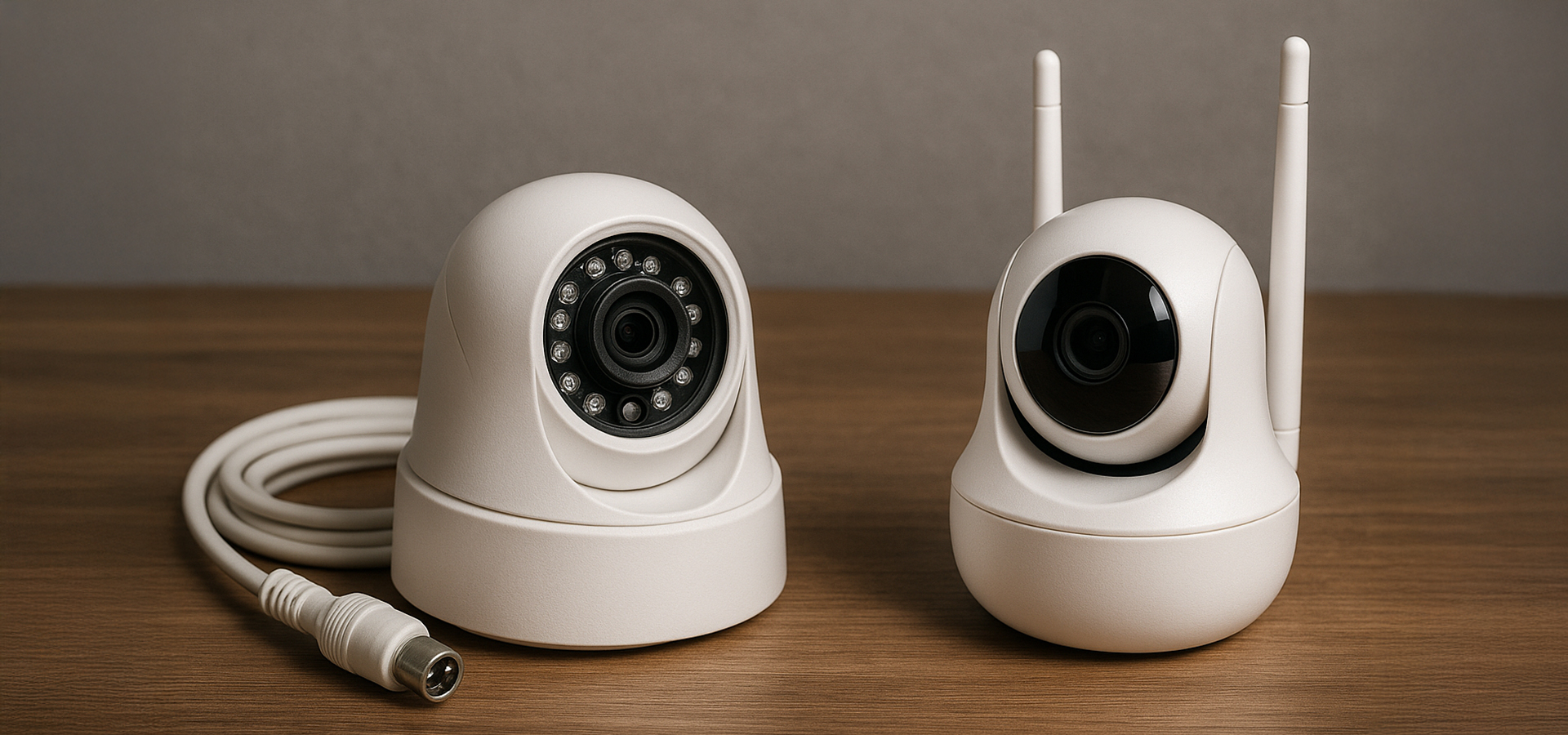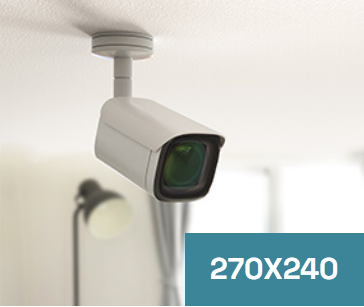Wired vs. Wireless Security Cameras: What’s Best for Your Home?
Wired vs. Wireless Security Cameras: What’s Best for Your Home?
When it comes to home security, choosing between wired and wireless security cameras is one of the most important decisions you can make. Each option offers unique advantages depending on your property layout, budget, internet access, and long-term goals. In this blog, we’ll explain the pros and cons of both types and help you find the best system for your home.
What Are Wired Security Cameras?
Wired security cameras are connected to a central recording device (DVR or NVR) via physical cables. These cables transmit both video and power, making them highly reliable and consistent in performance.
Advantages of Wired Cameras:
- Consistent Connection: Wired cameras aren’t affected by Wi-Fi interference or signal loss. Ideal for homes with unstable internet.
- Higher Video Quality: These systems typically support higher resolution and better frame rates due to direct transmission.
- Scalability: You can add multiple cameras with fewer concerns about bandwidth limitations.
Disadvantages:
- Professional Installation Required: Wiring through walls, ceilings, and attics can be labor-intensive and is often best handled by a pro.
- Less Flexible Placement: The location of your cameras depends on your access to cable runs and power sources.
Example: A homeowner with a large property who wants 24/7 continuous recording and has attic access might benefit from a wired system.
What Are Wireless Security Cameras?
Wireless cameras transmit footage over Wi-Fi or other wireless technologies. Most are powered through batteries or a nearby outlet, offering greater installation flexibility.
Advantages of Wireless Cameras:
- Easy Installation: Most wireless cameras are DIY-friendly and don’t require drilling or extensive cabling.
- Flexible Placement: As long as the camera can connect to Wi-Fi, you can install it nearly anywhere.
- Smart Features: Many wireless models come with cloud storage, two-way audio, motion alerts, and app-based monitoring.
Disadvantages:
- Dependent on Wi-Fi: Spotty or slow internet can affect camera performance.
- Battery Maintenance: If not hardwired, you’ll need to monitor and replace batteries periodically.
- Limited Range: Wireless signals may weaken over distance or through thick walls.
Example: Renters or homeowners in smaller spaces who want intelligent alerts and simple installation often prefer wireless cameras.
Which One Is Right for You?
The answer depends on your unique needs:
- Go with Wired if: You want a stable, hardwired solution with high-quality recording, and you’re okay with the upfront installation effort.
- Go with Wireless if: You value flexibility, live in a rental or smaller home, or want advanced innovative features without central installation.
Some homeowners even opt for a hybrid approach, using wired cameras for high-traffic areas and wireless cameras in harder-to-wire spots.
Final Thoughts
Both wired and wireless security cameras offer valuable protection for your home. Your choice should be based on your home layout, security goals, and comfort with technology. Still unsure which system to choose?
Contact Us for a Free Security Consultation
At J&J Security Systems, we help Georgia homeowners choose the perfect security camera setup for their lifestyle and property. Whether you’re leaning wired, wireless, or a mix of both, our experts are ready to guide you.
✉️ Contact us today for a free consultation and get the peace of mind your home deserves.






